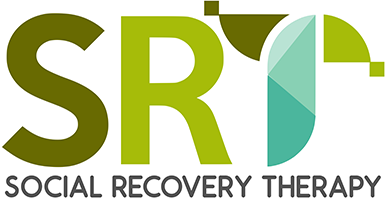Cognitive behaviour therapy for improving social recovery in psychosis: A report from the ISREP MRC Trial Platform study (Improving Social Recovery in Early Psychosis)
David Fowler, Joanne Hodgekins, M. Painter, Tony Reilly, C. Crane, Iain Macmillan, Miranda Mugford, Tim Croudace and Peter B. Jones
Abstract
Background
This study reports on a preliminary evaluation of a cognitive behavioural intervention to improve social recovery among young people in the early stages of psychosis showing persistent signs of poor social functioning and unemployment. The study was a single-blind randomized controlled trial (RCT) with two arms, 35 participants receiving cognitive behaviour therapy (CBT) plus treatment as usual (TAU), and 42 participants receiving TAU alone. Participants were assessed at baseline and post-treatment.
Method
Seventy-seven participants were recruited from secondary mental health teams after presenting with a history of unemployment and poor social outcome. The cognitive behavioural intervention was delivered over a 9-month period with a mean of 12 sessions. The primary outcomes were weekly hours spent in constructive economic and structured activity. A range of secondary and tertiary outcomes were also assessed.
Results
Intention-to-treat analysis on the combined affective and non-affective psychosis sample showed no significant impact of treatment on primary or secondary outcomes. However, analysis of interactions by diagnostic subgroup was significant for secondary symptomatic outcomes on the Positive and Negative Syndrome Scale (PANSS) [F(1, 69)=3.99, p=0.05]. Subsequent exploratory analyses within diagnostic subgroups revealed clinically important and significant improvements in weekly hours in constructive and structured activity and PANSS scores among people with non-affective psychosis.
Conclusions
The primary study comparison provided no clear evidence for the benefit of CBT in a combined sample of patients. However, planned analyses with diagnostic subgroups showed important benefits for CBT among people with non-affective psychosis who have social recovery problems. These promising results need to be independently replicated in a larger, multi-centre RCT.
